
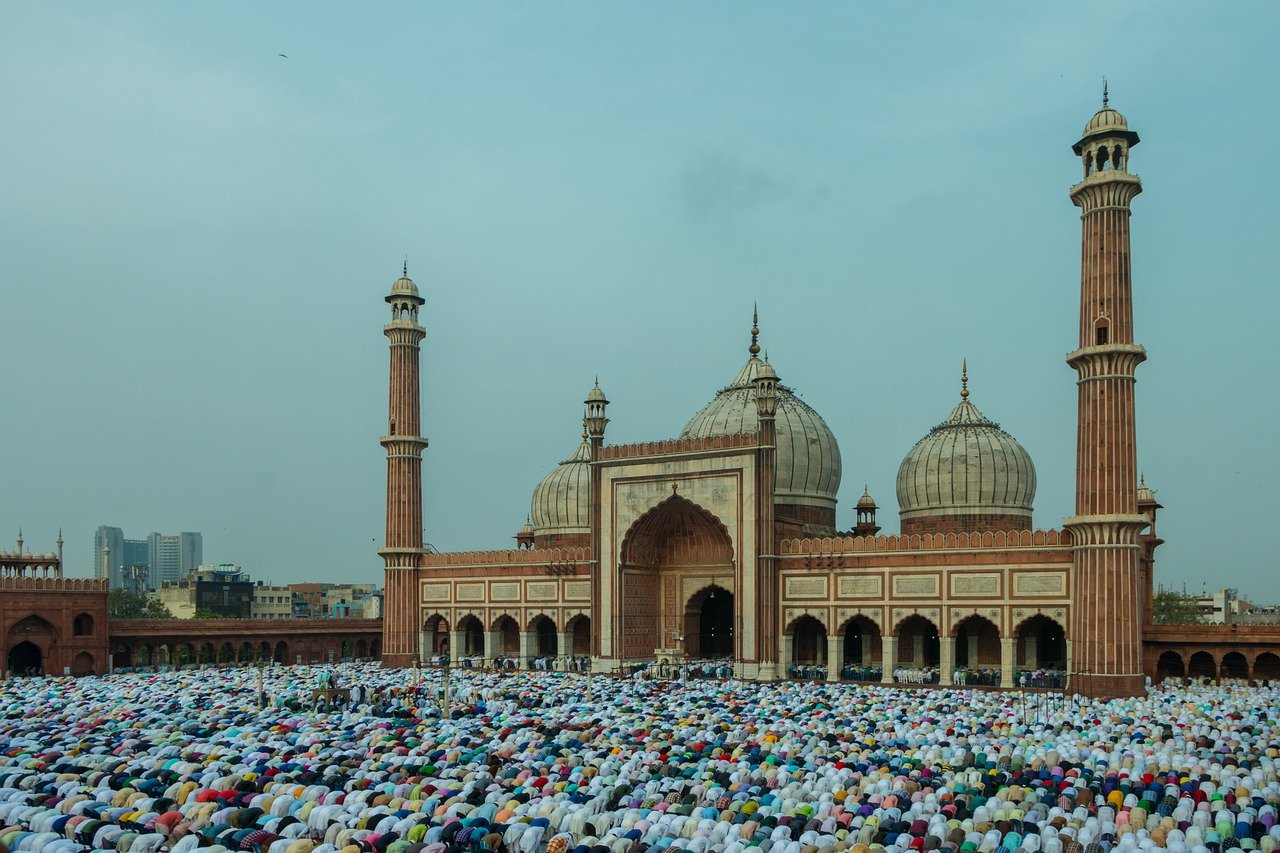
Eid al Adha, The Feast of Sacrifice
Eid al Adha (or Dhuha) is one of the greatest eids of Islam. It is a feast of love, sacrifice, and submission to the will of Allah (s.w.t). Celebrated on the 10th of Dhul Hijjah, the last month of the Islamic calendar, it is the time of the year where Muslims from all over the world gather for the annual ritual of Hajj and mark the end of Hajj by sacrificing a camel, a cow or a sheep. Those Muslims who could not make it for Hajj, sacrifice these animals and distribute the meat and other gifts among the poor, their family and friends.
There are many recommended (not obligatory) rituals and practices to be performed on the day of Eid al Adha, some of them are as follows:
-Doing Ghusl (ritual bath)
-Eid Prayer, either in a congregation or individually
-Reciting the Ziarat of Imam Husain (AS), the third infallible Imam
-Sacrificing either a camel, cow, or sheep. Sacrifice is obligatory for those performing Hajj and recommended for those not performing Hajj
-According to Islamic laws, it is forbidden to fast on this day
History of Eid al Adha
Prophet Abraham (PBUH) was a true embodiment of the verse from the Holy Quran: “Do the people suppose that they will be let off because they say, ‘We have faith,’ and they will not be tested? Certainly, We tested those who were before them. So, Allah shall surely ascertain those who are truthful, and He shall surely ascertain the liars.” (29:2)
Prophet Abraham (PBUH) was a great Prophet of Allah (SWT) who is greatly celebrated in the Holy Quran. He is one of the Ulu –l-Azm (Arch) prophets. Allah (SWT) calls him his friend in the Holy Quran (4:125). The intended sacrifice of this holy prophet is greatly eulogized in the Holy Quran and the prophetic traditions. Abraham is especially famous for the numerous ways God tested him; especially the tough tests of leaving his wife Hagar and his firstborn son Ishmael (2:124) and bringing his son to a special place as an offering to God (37:100-113).
The story of Prophet Abraham sacrificing his son is mentioned in the Holy Quran as follows:
“My Lord! Give me [an heir], one of the righteous.” So We gave him the good news of a forbearing son. When he was old enough to assist in his endeavor, he said, ‘My son! I see in dreams that I am sacrificing you. See what you think.’ He said, ‘Father! Do whatever you have been commanded. If Allah wishes, you will find me to be patient.’ So, when they had both surrendered to Allah’s will, and he had laid him down on his forehead, We called out to him, ‘O Abraham! You have indeed fulfilled your mission! Thus, indeed do We reward the virtuous! This was indeed a manifest test.’ Then We ransomed him with a great sacrifice, and left for him a good name in posterity: ‘Peace be to Abraham!’ Thus, do We reward the virtuous? He is indeed one of Our faithful servants.” (37:100-110)
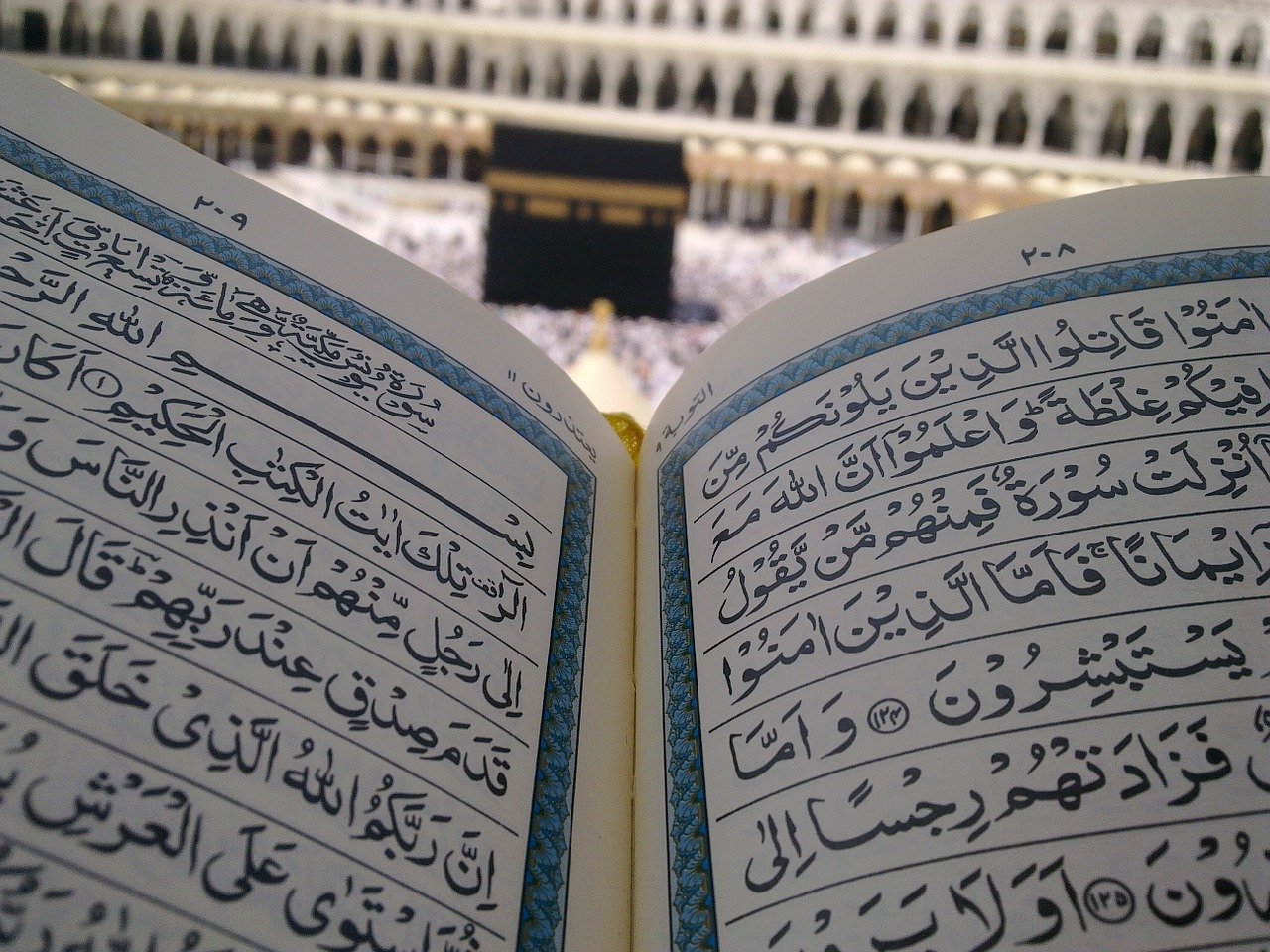
The Holy Quran gives us a very clear picture of the incidents that unfolded with Prophet Abraham (PBUH). It tells us that Prophet Abraham (PBUH) prayed for a righteous heir and Allah (SWT) answered his prayers. But after a few years, Allah (SWT) orders his Prophet to sacrifice his only son and both Prophet Abraham (PBUH) and Prophet Ishmael (PBUH) agree to submit to the will of Allah (SWT). It was a test for Prophet Abraham (PBUH) as well as his son Prophet Ishmael (PBUH), who emerged victorious from this test. Thus, leaving a legacy of complete submission to the will of Allah (SWT), a submission that calls for sacrificing everything you have to gain the pleasure of your beloved creator. It is this humble and pure submission of Prophet Abraham (PBUH) that makes this great prophet a ‘good example’ for us. (60:4).
The sacrifice of Prophet Abraham is not a fairy tale to be read to our children before going to sleep, it is a story that has the potential to make human beings build a lasting relationship with Allah (SWT). If we truly trust in Allah (SWT) and reach a position where we readily sacrifice everything in the way of Allah, we can proudly claim to be inheritors of the legacy of Abraham, a friend of Allah (SWT). But for us to reach that position we need to first ask ourselves: who is our Ishmael? Is it my child, my spouse, my property, wealth, job, position or my desires?
References
- Quran Translations, Ali Quli Qara’i
- Recommended rituals and practices on the eve of Eid and the day of Eid: Dua for EID ul Adha Night and Day (duas.org) (these recommended acts can also be found in Mafatih Al-Jinan under the section of aamaal for Eid)
- Exegesis of Surah Saaffat, Tafseer Nemuneh, Ayatollah Makarem Shirazi (Farsi)
Share This Article
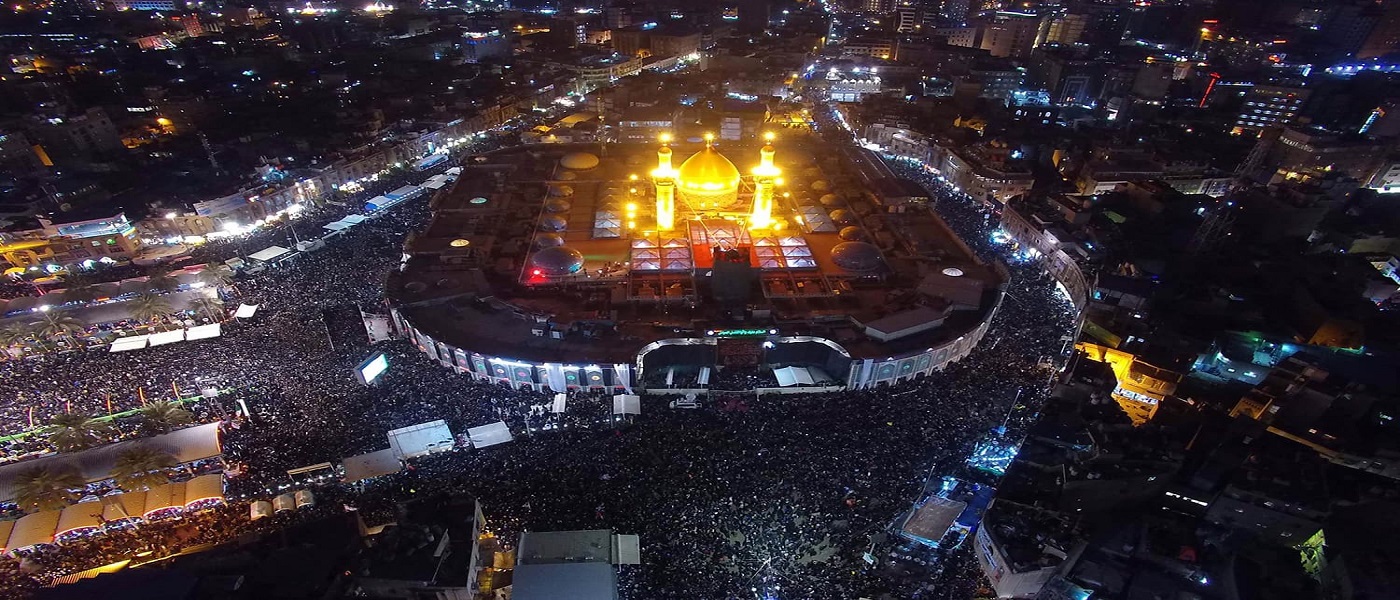
Why People Mourn for Imam Hussain’s (AS) Martyrdom?
“He turned away from them and said, ‘Alas for Joseph!’ His eyes had turned white with grief, and he choked with suppressed agony.” (12: 84)
Reading the above verse of the Quran, many people may not perceive why prophet Jacob (PBUH) wept so hard on the loss of his son, Josef (AS) until he became blind. And he continued grieving on the loss of Josef so much that his sons told him “By Allah! You will go on remembering Joseph until you wreck your health or perish”. (12: 85) Was his grief merely because of the loss of Josef or the oppression that his brothers had towards him? Or was it because of his disappointment with his other sons who committed such a cruel act toward Josef?
When we read the story of prophets in the Quran, each of them say to their people that I want no reward from you, as “my reward lies only with him who originated me” (11” 51), while among all the prophets of God, Prophet Muhammad (PBUH&HP) made an exception as God ordered him to tell people “Say, ‘I do not ask you any reward for it except the love of [my] relatives.” (42:23)
And therefore, it is for this straightforward order of God in the Quran that Muslims love the household of Prophet so dearly. It is narrated from the prophet who said: “Surely, there exists in the hearts of the believers, with respect to the martyrdom of Imam Hussain, a heat that never subsides.” [1]
Therefore, if you visit Muslims who are weeping and mourning on the martyrdom of Imam Hussain (AS), many of them may not be able to explain why they are doing so. They may only tell you that there are a pain and grief that I feel within my heart, and they may speak of their love for the prophet’s household. However, apart from those feelings and emotions, let’s see what the logical reasons behind mourning for Imam Hussain (AS), his family and companions are?
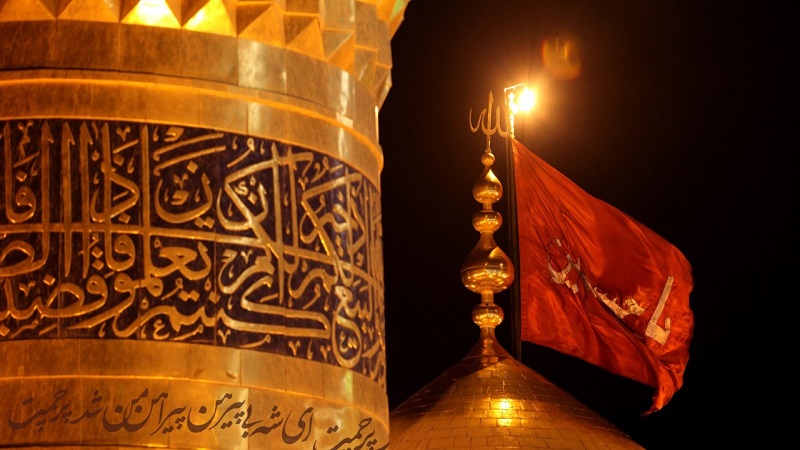
Why mourn for Imam Hussain (AS)?
The mourning for Imam Hussain (AS) that is increasingly spreading all over the world after about 1400 years is one of the miraculous aspects of Imam Hussain’s (AS) uprising. However, aside from strong feelings that Muslims have for the household of the Prophet, there are so many narrations from the progeny of Prophet Muhammad (PBUH) that encourages people to weep on the sorrow of Imam Hussain (AS) and his family. For example the narration from Imam Reza that says: “If you weep over the afflictions of Hussain (AS) such that tears flow from your eyes and fall upon your cheeks, Allah will forgive all your sins whether big or small and less or large in number.” [2]
But why would great Muslim leaders emphasize so hard on spending time and energy on weeping and mourning, while people could spend the same amount of time and energy for doing scientific research or inventing something that helps humanity?
This question is raised by many people, and here I wish to mention a few reasons why reviving the tragedy of Karbala is so important.
1. Allah’s Tradition in Telling Stories
“We will recount to you the best of narratives in what We have revealed to you of this Quran, and indeed prior to it you were among those who are unaware [of it].” (12:3)
When you read the Holy Quran, you see it full of stories of the past generations through which God portrays the most important human values in life.
The event of Karbala is full of lessons that are worth being reviewed every day and night, to help the growth of human society; lessons of heroism, standing against cruelty, defending human dignity, and complete obedience of God.
Holding mourning gatherings is a great reason where people of the society, from all different social classes and different ages, sit together and revise the most important humanitarian issues and values which awaken the spirit of chivalry in them and give them the courage to stand against the oppressors of their time.
2. Conveying the Message to the Next Generations
After the event of Karbala occurred, there were no specific media to convey the message of Karbala and the aim of Imam Hussain (AS) from going to the land of Karbala. From then on, it was only the mourning gatherings that were a place to recite the tragedy of Karbala to others and through it, illuminate the right from wrong. This great event at the time of Imam Hussain (AS) where the rulers of society were trying to hide the way of righteousness was a magnificent move to help the religion of God: “O you who have faith! Be Allah’s helpers, just as Jesus son of Mary said to his disciples, ‘Who will be my helpers for Allah’s sake?’” (61: 14)
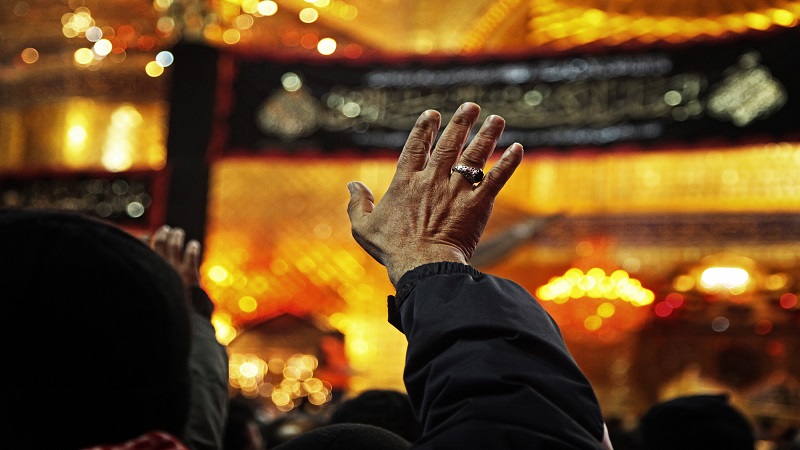
3. Envisage Your Goals, until You Reach Them
In today’s psychology, many believe that if you have a goal to reach, having an image of that goal in mind will help you reach it. In mourning ceremonies for Imam Hussain (AS) we keep repeating the great morals and values of Imam Hussain (AS) and his companions and household. We keep revising their kindness, wisdom, courage, their humbleness toward God and good people and chivalry toward the oppressors, etc.
Naming the above characteristics in such ceremonies and trying to be like those great courageous men and women, is more beneficial than any life-coaching sessions that try to help us revive ourselves and our lives, and it is at everyone’s access for free.
4. We Need a Role Model
If we hate oppression and wish to stand against it, we need a guide to know how to behave in different situations; when to negotiate, when to disagree, when to yell our beliefs, when to make our movement revolutionary and call others to assist us, when to make peace, and finally when is the time to fight against the oppressor?
It is hard to find a true answer to all the above questions when we face the oppressors. But revising the history of Karbala and studying Imam Hussain’s (AS) behavior in a different situation can help us find the choice when we face similar conditions, as he has gone through the same path. Mourning ceremonies are the situation where this history is revised every time, and we can perceive through reading the history that Imam Hussain (AS) did not tend to start a fight from the beginning. At some point he even migrated from his hometown to avoid the war, When he was forced to give allegiance to the corrupt caliph, Yazid, instead of making riots, he left the city, while he had received so many invitation letters from people of Kufah to become their leader. But since the Kufies broke their oath, he had to faith towards Karbala.
However, even in Karbala, he did not tend to fight. But he sent letters and made negotiations. He gave speeches to illustrate the truth for people. He wrote letters to different classes of the society and advised people and invited them to follow the true path. Although his enemies never accepted to change their minds and follow the true path, he still did not start the fight, until he was attacked by the enemy. And he defended himself and his household only when he had no other choice. Therefore, Hussain (AS) and his behavior in different conditions can be a great role model for us, in life.
5. Imam Hussain (AS) for All Humanity
Hussain (AS) does not belong to Muslims only. His behavior and lifestyle represent a way of life for all humans who wish to live a prosperous life. It is in the nature of all human beings who hate oppression and cruelty and would like to stand against it. Hussain (AS) teaches us to have courage and chivalry in life. That is why he faced the army of the enemy on the tenth day of Muharram and said: “If you do not believe in any religion and do not fear the resurrection day, at least be free men in this world.” This saying clearly shows that Hussain’s teachings are not limited to Muslims only, but his way of life can be a role model for all of those who wish to live a humane life.
References:
- Mustadrak al-wasail, vol. 10, p. 31
- Shaykh Abbas Qummi: Nafasul Mahmum, tradition. 9
- Bihar al-Anwar, vol. 45, p. 51
Read More

Backbiting General introduction
Backbiting is highly forbidden in Islam and is considered as a major sin. By speaking behind the back of others, people might deliberately spoil the dignity of each other, and in Islam, nothing is far more valuable than the honour of a human being. It is narrated from Prophet Muhammad (PBUH & HP) that during the miraculous night journey (Mi’raj) [i] that he (PBUH & HP) had, he (PBUH & HP) passed a group of people in hell who were scratching their own faces with nail. He (PBUH & HP) asked who they were. It was said that, those were the ones who used to backbite and dishonour others [1]. This punishment, besides others, was due to the fact that backbiting destroys the face of others and misrepresents them, hence, the backbiters scratched their faces which caused them to look more monstrous and nasty. Let’s see what Islam’s definition of backbiting, its conditions, types, consequences, etc is.
Meaning of Backbiting in Islam
According to Prophet Muhammad (PBUH & HP), backbiting is to mention and scold someone behind his back which is unpleasant and unkind to him/her [2]. It can be about his/her physical appearance, body, origin, character, deeds, or possessions like clothes, home, children or spouse.
Notice that there is a delicate difference between backbiting and slander. According to Imam Sadiq (AS), backbiting is to reveal something about your Muslim brother which Allah Almighty has concealed. But, revealing which is apparent such as being irascible or hasty is not considered as backbiting. But, slander is to attribute something to someone which is basically wrong [3].
The conditions to consider an act or a saying as backbiting
Not every act or saying about another person is backbiting. Backbiting is:
• If someone talks about the apparent and obvious characteristics of another person, it won’t be backbiting anymore, unless he\she intends to mock and deride that person. Hence, revealing the hidden defects of someone else is considered as backbiting whatever the intention is, but, talking about the obvious defects is considered as backbiting if one aims to reproach;
• When someone reveals the “defects” of someone else, but revealing the “strong points” of another person won’t be backbiting anymore;
• If the deficiency attributed to another person is unpleasant and blamed by everyone else;
• If one aims to dishonour another person by revealing his\her defects;
• And, if there is someone else who listens to or hears what is said about another person. It means that if one reviews someone’s defects by him\herself alone, it is not backbiting.

Backbiting is disapproved in Islam
Backbiting is so denounced in Islam that it is said: “Whoever dies while he had repented from backbiting, he\she will be the last who enters Heaven. And, whoever dies while have kept on backbiting, he\she will be the first who enters the Hell [4]!
In another narration, backbiting is compared to leprosy disease. It is said that backbiting ruins one’s faith much faster than leprosy disease ruins his\her body [5]. In surat Hujurat it is said: “O you who have faith! ... do not spy on or backbite one another. Will any of you love to eat the flesh of his dead brother? You would hate it. And be wary of Allah ...” (49:12).
Types of Backbiting
Backbiting is “mentioning” someone’s deficiency behind his\her back. Accordingly, the types of backbiting are:
• By words: it is the most common type of backbiting. It means one “speaks” about another person’s defect;
• By writing: if someone writes down the imperfection of someone else such that others can read it, too, the cartoons drawn to mock a personality or using someone’ pet phrase in order to make fun of him\her ;
• By act: if one reveals other person’s defect to someone else by showing or imitating it;
• By indirect words: like saying that “how lucky we are that we don’t have such a stingy partner!”;
• By gesture: like revealing one’s defect by a special movement of hand, head, eyes, etc.
Now that we found out how much backbiting is disapproved in Islam and what it is consists of, we need to find out its consequences, the way to prevent ourselves or others from backbiting, etc. Follow us on the second part of this topic to find the answers.
[i] The Mi’raj refers to the materialistic journey of the prophet Muhammad (PBUH & HP) from Mecca to Jerusalem, and from there, to the skies and back home again. That was during this journey that he (PBUH & HP) saw heaven and hell. For more details see: https://www.islamquest.net/en/archive/fa6152
References:
- Mirza Hussain Nouri, “Mustadrak al-Wasa’il”, vol. 9, p. 119.
- M. Naraqi, “Mi’raj al-Sa’sah”, p. 447.
- Shaykh al-Kolayni, “al-Kafi”, vol. 2, No. 7.
- Mulla M. Faydh Kashani, “Al-Mahajjat al-Baydha' ”, vol. 5, p.252.
- Shaykh al-Kolayni, “al-Kafi”, vol. 2, No. 1.
Read More

